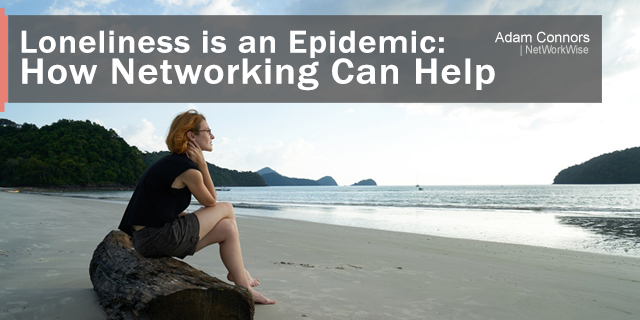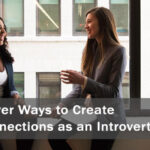According to U.S. Surgeon General Dr. Vivek Murthy, loneliness is an epidemic and a serious health problem.
“It turns out that loneliness is associated with a reduction in your lifespan that is as severe as the lifespan you see with smoking 15 cigarettes a day,” he said.
Many of us can feel disconnected and alone, especially given our recent circumstances. Even in our technology-driven and social media-posting world where you’re linked with many contacts, it doesn’t mean you’ve actually formed a connection with those individuals.
This is where relationship-building proves vital. Bonding and building rapport through shared passions and common goals aids in leading a longer and healthier life. And helps combat loneliness as you develop valuable relationships.
“Loneliness is a growing health epidemic. We live in the most technologically connected age in the history of civilization, yet rates of loneliness have doubled since the 1980s,” Dr. Murthy also stated.
When you don’t develop rapport or friendships, and find yourself without outside influences or stimulation, you can be left feeling isolated. A lack of relationships negatively impacts your health and limits the number of people you can turn to when help is needed.
Being lonely isn’t uncommon. In fact, it is quite common! And so prevalent that the United Kingdom and Japan have appointed a Minister of Loneliness.
Everyone experiences it at times. Some more than others. As stated in the report by the Jo Cox Commission on Loneliness: “Feelings of loneliness affect us all at some point, but being lonely can become a serious problem when it becomes chronic – a day-to-day reality which, over time, can grind us down, affecting our health and well-being and damaging our ability to connect with others.”
Networking can help. Establishing different types of social connections is essential for our overall well-being. By strengthening relations through networking and recognizing common ties in friendships, you are bonding with others through shared mutual respect and trust. And this produces a healthier environment for yourself.
When you’re lonely or depressed you can feel unworthy. Networking helps you discover your worth and value. Once you determine how your skills and experiences can benefit your contacts, you have set the groundwork to connect on a specific level with certain people.
“All growth starts at the end of your comfort zone.”
Tony Robbins
There are many ways to build relationships. As said by Tony Robbins: “All growth starts at the end of your comfort zone.” Even if you’re naturally shy or introverted there are techniques and tips for you to consider. They will help you break out of your comfort zone to interact successfully and make meaningful contacts.
You can utilize online platforms such as LinkedIn to reach out and form connections and join groups where you’ll find like-minded individuals. Networking events are great places to meet new people. If you’re not interested in attending a large gathering, consider scheduling one-on-one meetings. Again, there are many ways to build relationships!
Loneliness doesn’t disappear overnight. Just like anything else, it takes time. A shift in your mindset and outlook on networking can help gain positive results. It’s in our nature to associate with people who share similar values. But remember your number of contacts means nothing unless you find quality in those connections. You should build relationships, but they need to be the right relationships.
Developing strong networks can be extremely beneficial in helping you feel less alone. As you create meaningful connections and a genuine support system you can help combat loneliness – and lead a healthier life.









